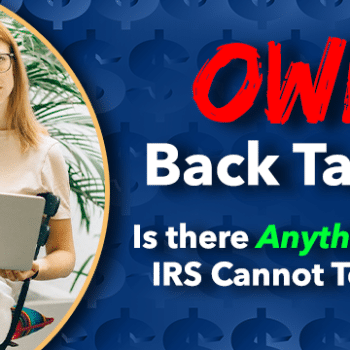
What’s the Difference Between a Tax Levy and a Tax Lien?
- Posted by Joshua Sells
- On April 8, 2022
- IRS Back Taxes, IRS Tax Attorney, irs tax lien, jmsellslaw, notice of federal tax lien, tax relief, Tax Resolution, what is wage garnishment
What’s the Difference Between a Tax Levy and a Tax Lien?
It’s no secret that failing to pay your taxes — or doing so incorrectly — can result in a variety of consequences. Though the most severe repercussions are easily avoidable by quickly addressing any amount still owed, adverse outcomes are just around the corner if you ignore the IRS for too long.
Of these, receiving a notice of federal tax lien or tax levy is one of the government’s “methods of last resort” to encourage taxpayers to pay off their debt. Still, that’s not to say everyone understands what one of these notices could mean for them and their assets.
That’s why we’re here to help. In this article, we’ll review the differences between an IRS tax lien and an IRS tax levy, as well as the solutions you can seek out if you’re affected by one.
What is a Tax Lien?
You won’t ever face a tax lien unless you’ve failed or neglected to pay your tax debt. Essentially, it is a legal claim against any property you own, protecting the government’s interest in everything from your personal property to financial assets — including anything you purchase after the lien is considered active.
You’ll know if a tax lien has been placed on your property after receiving a bill called the Notice and Demand for Payment, which means the IRS filed a Notice of Federal Tax Lien. This public document alerts other creditors that the government has “first dibs” on your property, restricting your ability to sell or refinance it moving forward.
It’s also important to note that tax liens automatically go into effect ten days after your initial Notice and Demand for Payment. So, if you have the means to pay and wish to avoid any further issues, it’s in your best interest to cover your debt as soon as you receive the notice.
What Does an IRS Tax Lien Mean for Me?
Understanding how a lien could impact your personal life can be difficult, especially considering the complexity of the situation. Unfortunately, it’s easy for this repercussion to quickly cause issues for your financial and personal wellbeing, as it could damage your:
- Credit: Your ability to increase or get credit may be restricted as soon as the IRS files a Notice of Federal Tax Lien.
- Business: A lien applies to all property, including any related to your business — as well as its accounts receivable.
- Bankruptcy Status: Filing for bankruptcy will not remove your lien nor tax debt, making it even more difficult to regain your financial health.
- Assets: All of your current and future assets will be attached to the lien for as long as it stands, preventing you from selling or refinancing items you own.
What are My Options?
There are a few routes you can take to remove your tax lien as soon as possible.
- Paying the Tax Debt: As always, this is the best and quickest way to remedy the situation. Once you’ve covered your tax debt, the IRS will remove the lien within 30 days of payment.
- Requesting a Collection Due Process (CDP) Hearing: This grants you the opportunity to dispute the amount owed and discuss tax levy alternatives with the IRS Independent Office of Appeals.
- Requesting a Certificate of Discharge: If you want to try your luck at removing the lien from a specific property, you can apply for a Certificate of Discharge , which requires applicants to provide explanations and reasonings to prove their eligibility.
- Requesting a Certificate of Subordination: As an alternative to the previous method, a Certificate of Subordination won’t remove the lien: however, it will allow other creditors to bypass the IRS, which could increase your chances of receiving a mortgage or loan.
- Requesting a Withdrawal: Finally, applying for a Withdrawal is one of the better outcomes following a notice of federal IRS tax lien, as it removes the lien entirely and allows other creditors to compete for your property. Of course, you’ll have to meet the IRS’ requirements to qualify, though it shouldn’t be difficult for those with a clean tax record.
What is a Tax Levy?
If you still haven’t paid off your debt following an IRS tax lien, you could soon find yourself dealing with a tax levy — the final step the government will take to retrieve the amount you owe them.
The difference between the two is quite clear: While a lien allows the government to secure your property, a levy enables them to take the property.
Some assets the IRS may levy include:
- Houses
- Vehicles
- Tax refunds
- Bank accounts
- Income (also known as wage garnishment)
Once acquired, it can sell them and use the earnings to pay off your debt.
What is Wage Garnishment?
Possibly one of the most concerning consequences of tax debt, wage garnishment enables the IRS to redirect your wages towards your overdue taxes. So, instead of your employer sending your income to you directly, a percentage will first be passed through the government.
What Are My Options?
Considering how devastating these repercussions can be to your personal life and financial wellbeing, it’s wise to do all you can — as quickly as you can — to reduce their severity by:
- Requesting a Payment Plan: The IRS is usually willing to work with those who owe a debt, yet cannot pay upfront, by creating a payment plan.
- Settling for Another Tax Amount: Alternatively, those who cannot pay their full debt without falling into financial hardship can request an offer in compromise to settle for a lower amount.
- Declare Hardship: If wage garnishment or a levy is restricting your ability to satisfy basic living expenses, you can declare hardship to try to have it removed (with reasonable proof, of course). This won’t eliminate your debt, but it could make it easier for you to acquire the funds necessary to cover the amount.
Need Help Facing a Tax Levy or Tax Lien?
You don’t need to do it alone. Avoid damaging repercussions by contacting J. M. Sells Law to speak with an experienced legal expert today about a tax lien release or levy release.


0 Comments